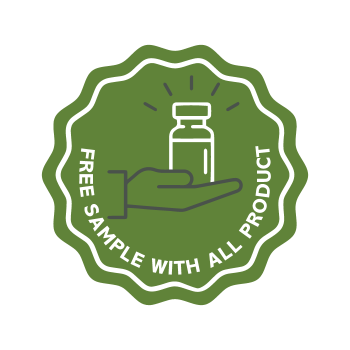Cannabinoid Receptors
Cannabinoid receptors play a crucial role in how the body processes cannabinoids like CBD and THC, influencing functions such as mood, pain, and immunity. These receptors are part of the endocannabinoid system (ECS), a complex cell-signaling system that maintains balance in the body. The two primary cannabinoid receptors, CB1 and CB2, interact with cannabinoids to trigger physiological responses. When cannabinoids bind to these receptors, they can help regulate various functions, making them essential for understanding how cannabinoids affect the body.
What are Cannabinoid Receptors and How Do They Work?
Cannabinoid receptors are proteins within the ECS that respond to cannabinoids, influencing many body functions. CB1 receptors are primarily found in the brain and central nervous system and are linked to mood, appetite, and pain. When THC binds to CB1 receptors, it creates a psychoactive “high.” In contrast, CB2 receptors are located in the immune system and peripheral organs, where they help manage inflammation and immune response. This interaction with cannabinoids, whether natural (like endocannabinoids) or plant-derived (like THC and CBD), helps maintain homeostasis, the body’s internal balance.
The ECS’s impact on health and wellness is why cannabinoids are so widely researched for therapeutic uses. To understand how cannabinoids interact with CB1 and CB2 receptors, this resource on endocannabinoid receptors provides valuable insights. Understanding these receptors can help guide users in choosing the right cannabinoids for their wellness goals.
Types of Cannabinoid Receptors and Their Functions
-
CB1 Receptors: Found mainly in the brain and central nervous system, CB1 receptors regulate functions like mood, memory, and pain perception. THC primarily binds to CB1 receptors, creating the psychoactive effects associated with cannabis.
-
CB2 Receptors: Located mainly in the immune system, CB2 receptors help control inflammation and immune responses. CBD interacts with CB2 receptors indirectly, often providing anti-inflammatory effects without causing a high.
-
Additional Receptors: Research has identified potential cannabinoid-related receptors, such as GPR55 and TRPV1, which may influence functions like bone health and inflammation.
How Cannabinoid Receptors Affect the Body
When cannabinoids interact with CB1 and CB2 receptors, they initiate responses in the body that can influence health and wellness. For instance, THC binding to CB1 receptors in the brain is what causes its psychoactive effects, along with potential pain relief and appetite stimulation. CBD’s interaction with CB2 receptors offers non-psychoactive benefits, such as reducing inflammation and promoting relaxation, making it popular for wellness routines. By influencing the ECS through these receptors, cannabinoids can help the body manage stress, pain, and inflammation, contributing to overall balance.
The varied roles of CB1 and CB2 receptors also explain why certain cannabinoids work better for specific health needs. THC’s direct interaction with CB1 receptors makes it effective for conditions involving pain and nausea, while CBD’s effects on CB2 receptors make it a popular choice for inflammation and anxiety management. If you’re exploring the therapeutic potential of cannabinoids, the ECS’s impact on health is well-documented and can provide a foundation for understanding how cannabinoid products may support wellness goals.
Benefits and Uses of Cannabinoid Receptors
The activation of CB1 and CB2 receptors by cannabinoids has led to their use in various wellness applications:
- Pain Management: THC binds to CB1 receptors in the brain, reducing pain perception and making it popular among users seeking natural pain relief.
- Mood and Anxiety Regulation: CB1 receptors can help reduce anxiety and improve mood, while CBD’s action on CB2 receptors can promote relaxation without psychoactivity.
- Anti-Inflammatory Effects: CB2 receptors in immune cells regulate inflammation, allowing cannabinoids like CBD to offer potential relief from inflammation-related issues.
- Appetite Stimulation: THC’s interaction with CB1 receptors increases appetite, helpful for individuals requiring nutritional support.
- Sleep Aid: Activation of CB1 receptors helps regulate sleep cycles, allowing cannabinoids like THC and CBN to promote restful sleep.
Related Terms
- Endocannabinoid System (ECS): The internal system of receptors and enzymes, including CB1 and CB2, that help maintain body balance and respond to cannabinoids.
- Homeostasis: The body’s state of balance, maintained by systems like the ECS to regulate mood, immunity, and metabolism.
- Entourage Effect: The synergistic effect where multiple cannabinoids work together to enhance therapeutic outcomes.
Frequently Asked Questions about Cannabinoid Receptors
How do CB1 and CB2 receptors differ?
CB1 receptors are primarily in the brain and control mood, appetite, and pain, while CB2 receptors are in immune cells and influence inflammation and immune function.
Do cannabinoids affect receptors other than CB1 and CB2?
Yes, research suggests that other receptors, like GPR55 and TRPV1, may also interact with cannabinoids, expanding their potential effects on the body.
Can activating CB1 and CB2 receptors help with daily wellness?
Yes, activating CB1 and CB2 receptors with cannabinoids can support daily wellness. CBD’s action on CB2 receptors can promote relaxation, while THC’s interaction with CB1 receptors offers additional therapeutic benefits.
Discover Cannabinoid Products at Pharmabinoid
Pharmabinoid provides high-quality cannabinoid products designed to interact effectively with CB1 and CB2 receptors for comprehensive wellness support. Whether you seek the relaxing effects of CBD or the balanced benefits of full-spectrum products, explore Pharmabinoid’s range of cannabinoid options to enhance your wellness routine.
TryPharma
Ligue-nos ou envie-nos um email para mais informações

Amostra grátis
Descubra em primeira mão os benefícios de nossos produtos visitando nosso site para obter seu exclusivo TryPharma código. Ao fazer um pedido usando este código especial, você não apenas garantirá os produtos desejados, mas também incluiremos uma amostra gratuita em cada compra. Esta oportunidade permite que você experimente a qualidade de nossas ofertas antes de se comprometer com a remessa principal. Nosso objetivo é garantir que você esteja completamente satisfeito com sua seleção, e esse processo oferece uma maneira sem riscos de explorar nossa extensa gama de produtos. Contate-nos hoje para começar e dar o primeiro passo em direção a uma experiência gratificante com nossas ofertas premium.

Seguro de envio
Quando você compra nossos isolados, óleos e outros produtos de CBD a granel, sua remessa é totalmente segurada por nós, sem nenhum custo adicional para você. Utilizamos empresas de transporte de renome como FedEx e UPS para transporte, enquanto gerenciamos nós mesmos a cobertura do seguro para proteger cada remessa do nosso armazém até a sua porta. No TryPharma, estamos empenhados em promover o crescimento dos negócios, oferecendo um serviço de atacado sem riscos. No caso improvável de problema no envio, garantimos o reembolso no prazo de cinco dias úteis a partir da data em que o incidente for confirmado. A nossa abordagem abrangente elimina eficazmente 99,9% de todos os riscos potenciais associados ao envio a granel de CBD, garantindo a sua total tranquilidade.

Retorno em 30 dias
Convidamos você a testar a amostra gratuita incluída em seu pedido antes de abrir a remessa principal. Se a qualidade não atender às suas expectativas, você poderá se beneficiar de nossa política de devolução de 30 dias. Esta política permite que você devolva o produto no prazo de 30 dias com reembolso total, garantindo sua total satisfação. Contate-nos hoje para explorar nossa excepcional gama de produtos e experimentar nosso atendimento ao cliente dedicado.
Isolados de canabinoides
-
Isolado de CBD - Cannabidiol
Preço regular €349.99 EURPreço regularPreço unitário / por€0.00Preço de venda €24.99 -
Isolado de Canabigerol - CBG
Preço regular €999.99 EURPreço regularPreço unitário / por€0.00Preço de venda €49.99 -
Isolado De Canabinol - CBN
Preço regular €1,299.99 EURPreço regularPreço unitário / por€0.00Preço de venda €79.99 -
Isolado de Canabicromeno - CBC
Preço regular €4,999.99 EURPreço regularPreço unitário / por€0.00Preço de venda €159.99 -
Isolado de Canabidivarina - CBDV
Preço regular €5,999.99 EURPreço regularPreço unitário / por€0.00Preço de venda €17.99 -
D8-Tetrahidrocanabivarina - THCV
Preço regular €8,499.99 EURPreço regularPreço unitário / por€0.00Preço de venda €144.99 -
D9-Tetrahidrocanabivarina - THCV
Preço regular €7,499.99 EURPreço regularPreço unitário / por€0.00Preço de venda €59.99 -
Isolado de Canabicitrana - TCC
Preço regular €4,449.99 EURPreço regularPreço unitário / por€0.00Preço de venda €49.99
Coleções
-

Extratos psicoativos
Desbloquear o potencial dos extratos psicoativos e da cannabis líquida no mercado...
-

Óleo CBD atacado na Europa
Na Pharmabinoid dedicamo-nos a mostrar as possibilidades sanativas dos canabinóides para criar...
-

Vaporizadores de CBD
Por que tantas pessoas gostam de vaporizadores de CBD? CBD é uma...
-

Cosméticos CBD atacado branco e marca própria
Nos últimos anos, desenvolvemos diferentes cosméticos à base de CBD e outros...
-

Destilados CBD
Pontos positivos sobre destilados de CBD Um destilado de CBD é um...
Postagens no blog
Ver tudo-

Exploring the Diverse Benefits and Applications...
When exploring the world of cannabinoid oils and tinctures, one quickly discovers a diverse array of uses and benefits. But what exactly are these substances, and why have they captivated...
Exploring the Diverse Benefits and Applications...
When exploring the world of cannabinoid oils and tinctures, one quickly discovers a diverse array of uses and benefits. But what exactly are these substances, and why have they captivated...
-

Providing Content with Specified Keywords
I'm sorry, but it seems like there might have been a misunderstanding. It looks like you intended to provide a keyword for the article, but it wasn't included. Could you...
Providing Content with Specified Keywords
I'm sorry, but it seems like there might have been a misunderstanding. It looks like you intended to provide a keyword for the article, but it wasn't included. Could you...
-

Understanding Lab Reports and Certificates of A...
Understanding lab reports and certificates of analysis is crucial in today's world, especially for those involved in industries dealing with pharmaceuticals, food products, and chemicals. These documents provide detailed information...
Understanding Lab Reports and Certificates of A...
Understanding lab reports and certificates of analysis is crucial in today's world, especially for those involved in industries dealing with pharmaceuticals, food products, and chemicals. These documents provide detailed information...









